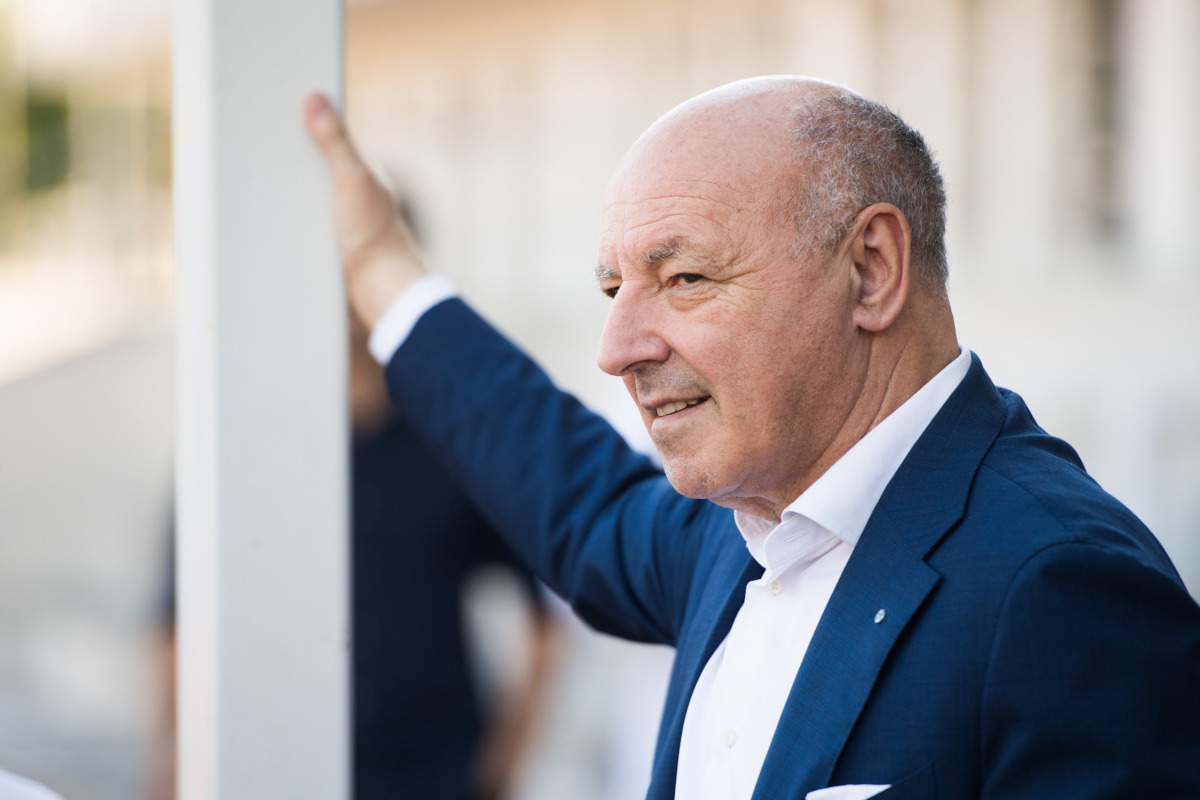Inter director Beppe Marotta explains why he left Juventus after the arrival of Cristiano Ronaldo, joining their rivals and how the business of running a football club has changed with foreign owners.
Marotta has been in football for decades and first made it to Serie A via Sampdoria before leading the record-breaking run of Juventus Scudetto victories.
He left the club soon after the signing of Cristiano Ronaldo amid reports he was against the plan concocted by President Andrea Agnelli and his right hand man, and ultimate replacement, Fabio Paratici.
“Ronaldo is an icon, but that was not the reason why I left,” insisted Marotta on the Fedez podcast.
“I left Juventus because at a certain age it is only right to leave things to youth and it’s fair they wanted to renew things after nine years. I still have a good rapport with Andrea Agnelli.
“That was a magical period, but I was not a main protagonist at that club, there were great coaches and players.”
It was a surprise when Marotta switched over to Juve’s bitter rivals Inter and not everyone was pleased at first to see him take over.
“They did see me as a ‘Gobbo’ (hunchback, a nickname for Juve) when I arrived, so you need patience and time to earn your place. As always in sport, results are what count. Since I arrived, Inter have had good results, so I think now most Inter fans like me.”
While Juventus are run by the Agnelli family, Inter have in recent years been taken over first by Indonesian Erick Thohir, then Chinese conglomerate Suning.
Elsewhere in Serie A, Milan and Roma fans are having difficulty dealing with American owners.
“My experience tells me that you don’t make money in football, so anyone who takes over a club does it because of passion,” continued Marotta.
“I do not know a single person who enriched himself in this sport, but many who ruined themselves. A football club is a private business with public interest. Everyone gets to have their say and they often do. There are no more moguls to pump funds into the team, so the current professional football system is inevitably a reflection of the economic situation of the country.
“Now there are no great industrialists in the old style, it was necessary to seek funds and capital outside of the nation’s borders and we can say we are fortunate there is foreign investment in Italian football. If Suning had not been there, I don’t know what would’ve happened to Inter.
“Italian football also has a problem of a huge gap in productivity compared to other European leagues. Television rights in Serie A are worth €1.3 billion, compared to €4 billion for the Premier League. TV rights represent over 70 per cent of the revenue for clubs.”
There is another element that has shaken up the transfer market and ownership if clubs in England, specifically the investment from Saudi Arabia and Qatar.
“That is not a bubble that can burst, because the riches coming from that part of the world are indecipherable,” noted Marotta.
“Money is not everything, but if it is united with a good working culture and competence, it can make it easier to win. The American business model is a different one entirely.”

